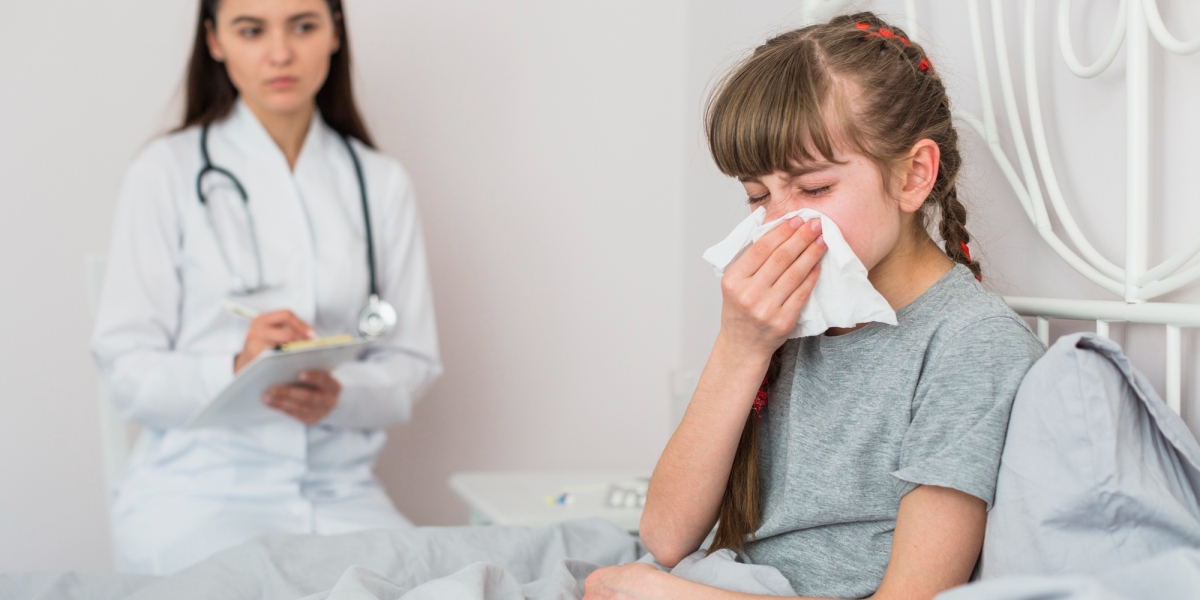Introduction
Allergy clinics specialize in diagnosing, treating, and managing allergic conditions and sensitivities. Allergies can affect various aspects of life, from seasonal discomfort to chronic health issues. An allergy clinic provides specialized care to help patients understand their allergies, manage symptoms, and improve their quality of life. This guide explores what an allergy clinic offers, common conditions treated, diagnostic and treatment methods, and how to choose the right clinic for your needs.
What to Expect at an Allergy Clinic
-
Consultation and Assessment:
- Medical History: The first step involves discussing your medical history, including any previous allergic reactions, family history of allergies, and current symptoms.
- Symptom Evaluation: Detailed questions about your symptoms, their frequency, and triggers help the allergist understand your condition.
-
Diagnostic Testing:
- Allergy Testing: Common tests include:
- Skin Prick Test: Small amounts of allergens are applied to the skin to observe reactions.
- Blood Tests: These measure specific antibodies (IgE) related to allergic reactions.
- Patch Testing: Used to identify delayed allergic reactions to substances.
- Spirometry: Measures lung function to diagnose conditions like asthma, which may be related to allergies.
-
Personalized Treatment Plans:
- Allergen Avoidance: Recommendations for avoiding known allergens and reducing exposure.
- Medications: Prescriptions for antihistamines, nasal sprays, or other medications to manage symptoms.
- Immunotherapy: Allergy shots or sublingual tablets designed to desensitize the immune system to specific allergens over time.
- Lifestyle and Environmental Changes: Advice on modifying your environment or daily habits to reduce allergy symptoms.
-
Ongoing Care and Management:
- Follow-Up Visits: Regular appointments to monitor progress, adjust treatment plans, and address any new or persistent symptoms.
- Patient Education: Guidance on managing allergies, recognizing triggers, and understanding treatment options.
Common Conditions Treated at an Allergy Clinic
-
Allergic Rhinitis:
- Seasonal Allergies (Hay Fever): Triggered by pollen from trees, grasses, and weeds.
- Perennial Allergies: Caused by indoor allergens such as dust mites, pet dander, and mold.
-
Asthma:
- A chronic respiratory condition characterized by inflammation and narrowing of the airways, often triggered by allergens, infections, or environmental factors.
-
Food Allergies:
- Allergic reactions to specific foods such as peanuts, shellfish, dairy, or eggs. Reactions can range from mild to severe and may include symptoms like hives, swelling, or anaphylaxis.
-
Drug Allergies:
- Adverse reactions to medications, which can manifest as rashes, itching, or more severe reactions like anaphylaxis.
-
Insect Sting Allergies:
- Allergic responses to stings from bees, wasps, or other insects, potentially leading to severe reactions such as anaphylaxis.
-
Eczema (Atopic Dermatitis):
- A chronic skin condition that causes itching, redness, and inflammation, often associated with allergies.
-
Sinusitis:
- Inflammation of the sinuses often linked to allergies, leading to symptoms like congestion, headache, and facial pain.
Diagnostic and Treatment Methods
-
Allergy Testing:
- Identifies specific allergens responsible for your symptoms, guiding effective treatment.
-
Medications:
- Antihistamines: Reduce allergy symptoms by blocking histamine release.
- Decongestants: Relieve nasal congestion.
- Nasal Corticosteroids: Reduce inflammation in the nasal passages.
-
Immunotherapy:
- Allergy Shots: Involve regular injections of gradually increasing amounts of allergens to build tolerance.
- Sublingual Immunotherapy: Involves taking allergen tablets under the tongue to achieve desensitization.
-
Lifestyle Adjustments:
- Recommendations for reducing allergen exposure, such as using air purifiers, maintaining cleanliness, and managing indoor humidity.
-
Emergency Management:
- Epinephrine Auto-Injectors: Prescribed for individuals at risk of severe allergic reactions or anaphylaxis.
Choosing the Right Allergy Clinic
-
Specialization and Credentials:
- Ensure the clinic is staffed by board-certified allergists or immunologists with expertise in diagnosing and treating allergies.
-
Comprehensive Services:
- Look for clinics that offer a full range of diagnostic tests, treatment options, and ongoing care.
-
Patient Reviews and Recommendations:
- Seek feedback from other patients and consult with your primary care physician for recommendations.
-
Convenience and Accessibility:
- Consider the clinic’s location, appointment availability, and whether they accept your insurance.
-
Comfort and Communication:
- Choose a clinic where you feel comfortable discussing your symptoms and where the staff communicates clearly and effectively.
Conclusion
An allergy clinic offers specialized care for diagnosing, treating, and managing allergic conditions, helping individuals achieve relief from symptoms and improve their quality of life. By understanding what to expect at an allergy clinic, the conditions treated, and the methods used, you can make informed decisions about your allergy management. Choosing the right clinic ensures you receive expert care tailored to your needs, leading to effective treatment and better control over your allergies.
